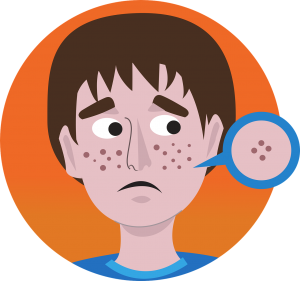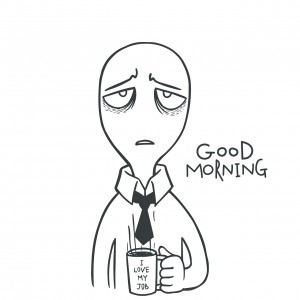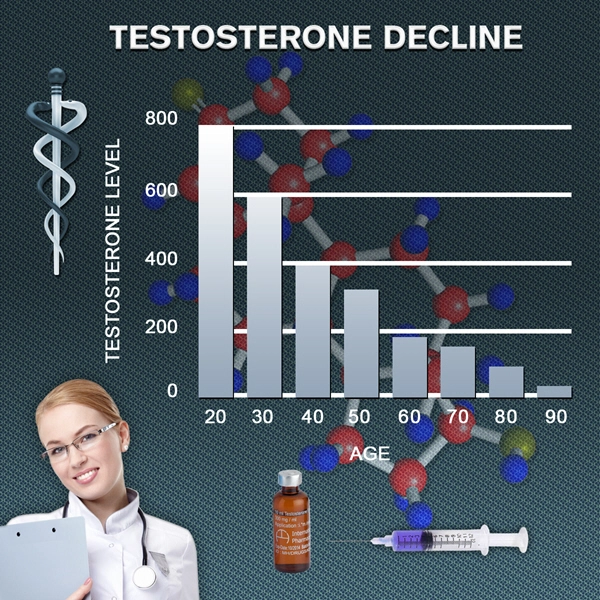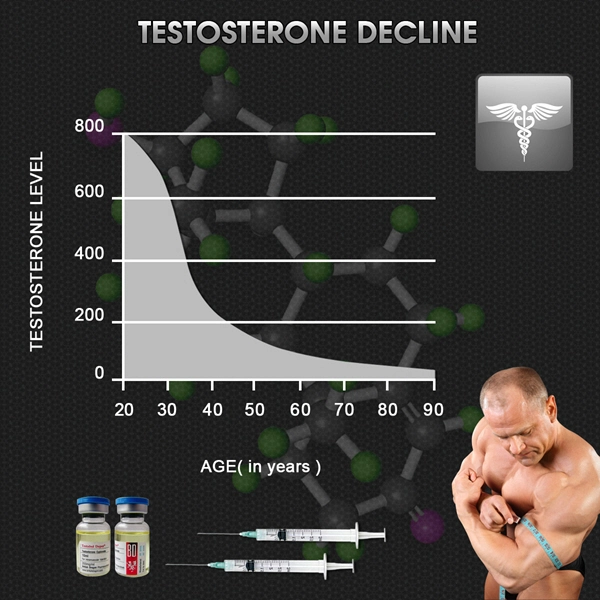 You’ve heard of menopause, but that’s just for women, right? WRONG-O BUCKO. Men can and usually do experience some sort of hormonal disturbance or imbalance as they age, typically around 40-50 years of age.
You’ve heard of menopause, but that’s just for women, right? WRONG-O BUCKO. Men can and usually do experience some sort of hormonal disturbance or imbalance as they age, typically around 40-50 years of age.
Although men do not experience a dramatic drop in sex hormones like women do or the loss of their fertility, they mainly experience a significant, steady decline in testosterone. Unfortunately, low testosterone can negatively affect a man’s overall health.
It’s All Downhill After the Age of 40
Just like women experience perimenopause and a drop in fertility around the age of 40, men start to experience their own sort of “menopause” around the same time frame. On average, a man’s testosterone levels decline by about 1% annually after age 40.
Most men will still have testosterone levels within the normal range. Still, if you are someone who has been living a sedentary lifestyle, with minimal exercise, high-stress job, and a poor diet, it’s more than likely that you are in the group that has lower than-average testosterone levels.
The medical term for low testosterone is hypogonadism, which also applies to women when their sex hormones are not adequately produced. We know that decreased hormone production is a normal and natural part of aging.
Still, a poor lifestyle, high stress, autoimmune and genetic disorders, and kidney/liver disease can also cause low T. Unfortunately, this decline in sex hormones is not as well understood as it is in women.
 Testosterone is Essential for Male Health
Testosterone is Essential for Male Health
Testosterone is the “male hormone” that is necessary for men to become MEN. It is what pushes boys to go through puberty. Once a boy reaches adulthood and beyond, testosterone is still just as crucial for his health.
The Cleveland Clinic states that testosterone maintains sexual and reproductive function, muscle mass, red blood cell counts, and bone density.
Testosterone is synthesized by the body from cholesterol, and the pituitary gland in the brain controls levels. Not only does testosterone participate in important physiological reactions in the body, but it also affects human behavior in both men and women. For example, it can make men more aggressive, more prone to risk-taking behavior, and/or engage in social risks, such as “going against the grain.”
Symptoms of Male Menopause
 Many symptoms are related to male menopause or low testosterone, although you may not experience all of them at once or ever.
Many symptoms are related to male menopause or low testosterone, although you may not experience all of them at once or ever.
These symptoms include low sex drive, erectile dysfunction, cognitive/memory issues, fatigue, depression, moodiness, and low muscle mass/reduced strength.
Less common symptoms include mild anemia, decreased body hair, increased body fat, breast development, osteoporosis, and infertility.
It’s possible for a man to rid himself of these symptoms and boost testosterone levels via natural means, such as eating a better diet, including more healthy fats, increased exercise, such as resistance training and weight lifting, and stress control.
However, many men who have been abusing their health and bodies for years or decades may need to start directly on a testosterone replacement therapy program.
How Can Testosterone Replacement Therapy Help?
 First, to get started on testosterone replacement therapy (TRT), you need to get a comprehensive blood panel done to determine your baseline total testosterone and free testosterone levels.
First, to get started on testosterone replacement therapy (TRT), you need to get a comprehensive blood panel done to determine your baseline total testosterone and free testosterone levels.
A licensed endocrinologist or physician must prescribe this. Yes, you can try to get illegal testosterone via the black market, but this is risky legally and concerning your health. You never know what you are really getting.
In addition, injecting hormones is not a simple process in that the proper dosage needs to be administered. This can be hard to determine if you are not a hormone expert.
Too many adverse side effects may result if the dose is too high. You will not see the desired results if the dose is too low. This is why it is best for you to contact a knowledgeable and competent physician, such as the ones at our clinic. Contact us today to get started!
References

- The Most Common Symptoms of Low Testosterone in Both Old and Young Men [Last Updated On: November 22nd, 2025] [Originally Added On: January 23rd, 2021]
- The Results Are In: The Effects of TRT on Men with Prostate Cancer [Last Updated On: September 1st, 2025] [Originally Added On: February 25th, 2021]
- Treating Low Testosterone with Hormone Therapy (TRT): The Fundamentals [Last Updated On: December 7th, 2025] [Originally Added On: April 15th, 2021]
- The Relationship Between Erections and the Estrogen/Testosterone Ratio [Last Updated On: June 2nd, 2025] [Originally Added On: April 15th, 2021]
- Testosterone Levels Main Determining Factor Behind Fracture Risk in Older Men [Last Updated On: March 23rd, 2025] [Originally Added On: April 23rd, 2021]
- Simple Lifestyle Changes to Boost and Naturally Increase Your Testosterone Levels [Last Updated On: December 2nd, 2025] [Originally Added On: May 9th, 2021]
- If You Suffer From Low-T, You’re More at Risk for Severe COVID-19 Symptoms [Last Updated On: May 30th, 2025] [Originally Added On: May 30th, 2021]
- Testosterone Therapy May Have Positive Effects on Non-Alcoholic Fatty Liver Disease [Last Updated On: June 1st, 2025] [Originally Added On: June 30th, 2021]
- Focus on These Five Workouts to Naturally Boost Both HGH and Testosterone [Last Updated On: April 6th, 2025] [Originally Added On: March 16th, 2022]
- Does Every Man Experience Erectile Dysfunction as He Gets Older? [Last Updated On: April 10th, 2025] [Originally Added On: March 25th, 2022]
- The Pros and Cons of Taking DHEA Supplements for Men [Last Updated On: April 11th, 2025] [Originally Added On: April 7th, 2022]
- Avoid These Foods That Reduce Testosterone [Last Updated On: April 16th, 2025] [Originally Added On: June 28th, 2022]
- Tlando: The Super Easy TRT Alternative to Xyosted for Testosterone Deficiency [Last Updated On: April 18th, 2025] [Originally Added On: July 11th, 2022]
- Reasons Why Cialis May Be a Better Option Than Viagra to Treat ED [Last Updated On: April 17th, 2025] [Originally Added On: July 22nd, 2022]
- Testosterone and Estrogen Imbalance May Impair Shoulder Joint Health [Last Updated On: November 10th, 2025] [Originally Added On: August 16th, 2022]
- Can You Suddenly Stop Testosterone Replacement Therapy (TRT)? [Last Updated On: April 25th, 2025] [Originally Added On: October 7th, 2022]
- What is Testosterone? [Last Updated On: April 29th, 2025] [Originally Added On: October 11th, 2022]
- You'd Never Suspect That Your Problems are Caused by Low-T! [Last Updated On: April 15th, 2025] [Originally Added On: March 9th, 2024]



List of USA state clinics - click a flag below for blood testing clinics.
Word Count: 670


















































